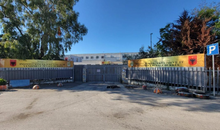
 Flash News
Flash News
Drenova prison police officer arrested for bringing drugs and illegal items into cell
Lavrov: NATO is risking self-destruction with new military budget
Kurti and Vučić "face off" tomorrow in Skopje
Construction worker dies after falling from scaffolding in Berat
The prosecution sends two Korça Municipality officials to trial
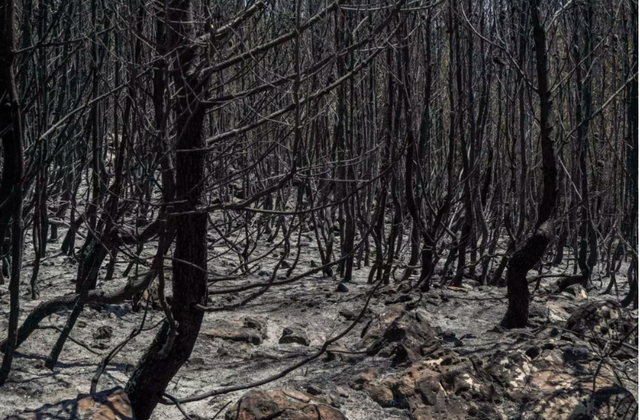
Over 184,000 hectares of forests and pastures have burned in Albania in the last ten years. From 2014 to the beginning of this year, the country has been engulfed by 943 fires, a phenomenon that is being exacerbated by the significant increase in temperatures.
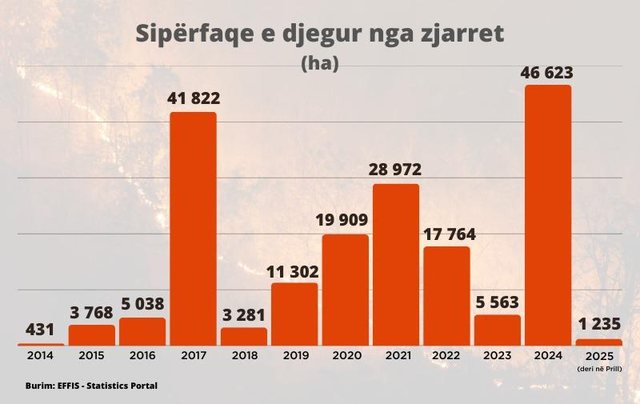
Last year, which set a record for heat, was also the year with the highest number of fires and burned areas in the last decade. 46 thousand hectares of forests and pastures were scorched.
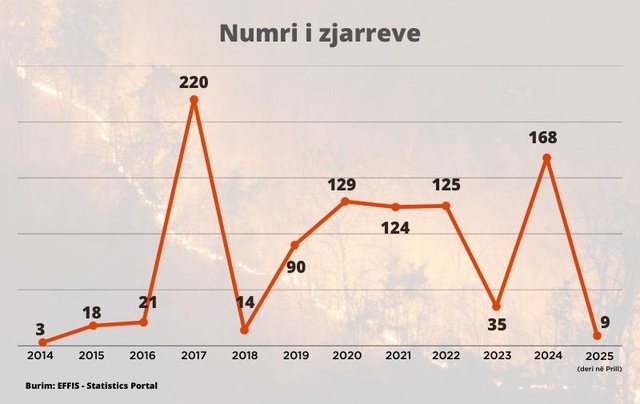
The flames did not stop just in forests and pastures; they advanced towards homes, endangering the lives and property of residents from the north to the south of the country.
Experts say climate change has made fires more aggressive - so according to them, the record number of fires in the last decade is no coincidence.
"Climate change is now tangible for a generation, before it took several generations to see something different in the effects of the climate," says Lulëzim Shuka, professor of natural sciences at the University of Tirana.
"Temperatures are significantly higher and the lack of snow in mountainous areas does not allow moisture to penetrate deep into the soil. The surface of the earth is boiling," he further argues.
For this reason, the future brings no solutions, but repetitions with even greater flames.
"The situation this year will be the same, if not worse!" warns forestry engineer Abdulla Diku.
"More fires and more damage from them. Without logistical equipment, without support and without qualified forestry personnel, we will only be able to compile statistics on damage from forest fires," he continues.
Professor Lulëzim Shuka shares the same concern. Without immediate intervention, the future will be even more difficult, he underlines.
"Albania must prepare for even bigger fires from climate change," Shuka asserts.
Emergency funds and equipment
Last summer, Prespa National Park was engulfed in flames for days, while the intervention of the authorities was delayed. Due to the difficult terrain, the fire got out of control. In a rare case, the residents of the area mobilized themselves, using mules and donkeys to help firefighters on the Dry Mountain.
"The priority should be to establish an air fleet, due to the difficult terrain, as well as equipping municipalities with large forest areas with new firefighting equipment," says Professor Lulëzim Shuka.
But Albania does not have any firefighting aircraft available, despite promises to expand its air fleet for civil emergencies.
"A request for the purchase of two light multi-purpose fixed-wing aircraft is in the process of being drafted. These aircraft will be used for intervention in cases of natural disasters and for agricultural support," the Ministry of Defense explained to Faktoje.al, following a right to information request.
According to the Ministry, the expected deadline for putting the aircraft into operation is the end of 2025 or the beginning of 2026.
On the other hand, dealing with fires does not depend only on increasing the air fleet. Experts say that civil emergencies require sustainable funding and serious planning, which has been lacking in Albania for years.
"Primarily because we had a high planned budget, the level of implementation has been low," notes Ilir Brasha, an expert on economics and finance.
Source: Ministry of Finance
According to him, the biggest problem lies in the fact that investments have had the lowest level of realization.
"This shows that the funds made available have not been used properly and have not been used, creating problems regarding the situation on the ground," he adds.
Consequently, the concern lies not only in the lack of funds, but also in the way they are managed and used in practice.
"This also calls into question the fact that even if in the future there will be a higher amount of money planned for this program, the implementation and the concrete works that will be carried out will still be very small," Brasha concludes.
More fires but less punishment
In Albania, arson is a criminal offense punishable by 5 to 20 years in prison. But in the last decade, the enforcement of the law against environmental crimes has given way to impunity.
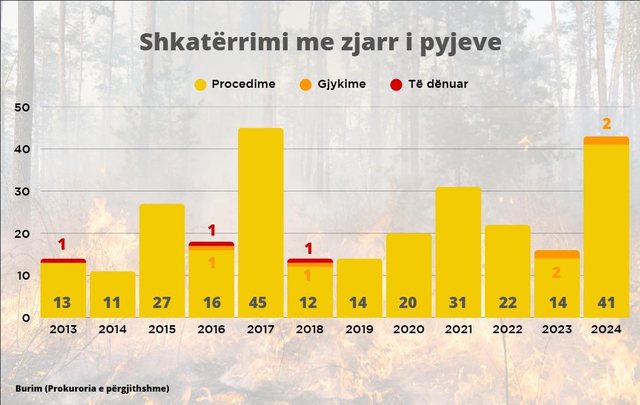
The balance of the last decade shows that the tightening of the Criminal Code for intentional arson or fire due to negligence has not yielded results. In the last decade, 253 criminal proceedings have been registered for the destruction of forests and the forest environment by fire. Crime against the environment has increased significantly, but punishment is lacking. Out of hundreds of people prosecuted, only two arsonists have ended up behind bars.
"They are burning and will burn them for tourist resorts or to hide traces of other environmental crimes. No one will be caught and punished, because no one punishes themselves for a crime committed in cold blood. He who has money buys everything, even the convict," says forestry engineer Abdulla Diku.
The punishment is minimal even for negligent fires. Out of 85 prosecuted, only 8 individuals were convicted.
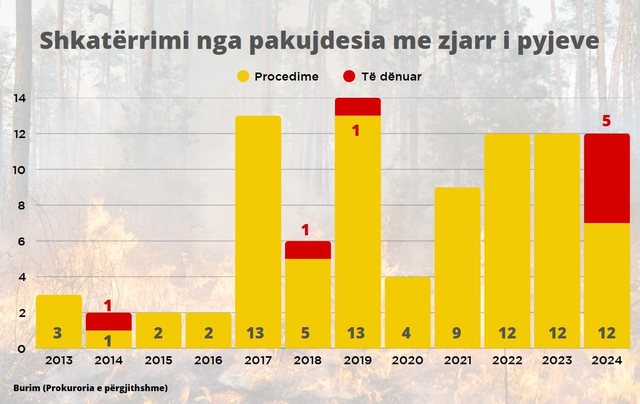
As the land continues to burn and the consequences of the fires become increasingly severe, Albania remains naked in the face of a crisis that requires an emergency response. Without a clear strategy, sustainable financing and real punishment for environmental crimes, the balance of the coming years risks being measured in more burned hectares and irreversible loss of nature./Faktoje.al
Latest news



Second hearing on the protected areas law, Zhupa: Unconstitutional and dangerous
2025-06-30 22:18:46



Israel-Iran conflict, Bushati: Albanians should be concerned
2025-06-30 21:32:42

Fuga: Journalism in Albania today in severe crisis
2025-06-30 21:07:11
"There is no room for panic"/ Moore: Serbia does not dare to attack Kosovo!
2025-06-30 20:49:53

Temperatures above 40 degrees, France closes nuclear plants and schools
2025-06-30 20:28:42
Lavrov: NATO is risking self-destruction with new military budget
2025-06-30 20:13:54
Turkey against the "Bektashi state" in Albania: Give up this idea!
2025-06-30 20:03:24

Accused of sexual abuse, producer Diddy awaits court decision
2025-06-30 19:40:44



Kurti and Vučić "face off" tomorrow in Skopje
2025-06-30 18:44:12
Tourism: new season, old problems
2025-06-30 18:27:23


Construction worker dies after falling from scaffolding in Berat
2025-06-30 17:51:44




Almost free housing: East Germany against depopulation
2025-06-30 16:43:06

Hamas says nearly 60 people killed in Gaza as Trump calls for ceasefire
2025-06-30 16:14:15
Drownings on beaches/ Expert Softa: Negligence and incompetence by institutions!
2025-06-30 16:00:03


European ports are overloaded due to Trump tariffs
2025-06-30 15:30:44
The prosecution sends two Korça Municipality officials to trial
2025-06-30 15:19:54

Lezha/ Police impose 3165 administrative measures, handcuff 19 drivers
2025-06-30 14:55:04
Young people leave Albania in search of a more sustainable future
2025-06-30 14:47:52
Record-breaking summer, health threats and preventive measures
2025-06-30 14:36:19


Constitution of the Parliament, Osmani invites political leaders to a meeting
2025-06-30 14:07:54

Heat wave 'invades' Europe, Spain records temperatures up to 46 degrees Celsius
2025-06-30 13:42:02
Accident in Vlora, car hits 2 tourists
2025-06-30 13:32:16

Kurti confirms participation in today's official dinner in Skopje
2025-06-30 13:03:27

Fight between 4 minors in Kosovo, one of them injured with a knife
2025-06-30 12:38:45

Report: Teenage girls the loneliest in the world
2025-06-30 12:20:40
Commissioner Kos and Balkan leaders meet in Skopje on Growth Plan
2025-06-30 12:07:59
Wanted by Italy, member of a criminal organization captured in Fier
2025-06-30 11:55:53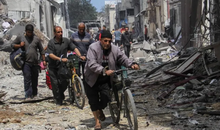
Hundreds of families displaced by wave of Israeli airstrikes in Gaza
2025-06-30 11:45:17
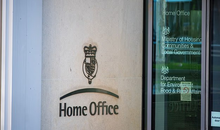
Zenel Beshi: The criminal who even 50 convictions won't move from Britain
2025-06-30 11:23:19
A new variant of Covid will circulate during the summer, here are the symptoms
2025-06-30 11:14:58

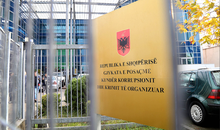
"Partizani" case, trial postponed to July 21 at the Special Court
2025-06-30 10:41:05
Uncontrolled desire to steal, what is kleptomania, why is it caused
2025-06-30 10:30:08
Requested change of security measure, hearing for Malltez postponed to July 7
2025-06-30 10:24:32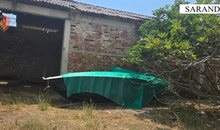
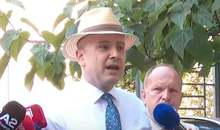

Output per working hour in Albania 35% lower than the regional average
2025-06-30 09:54:35

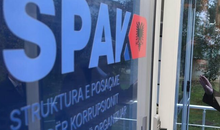
The trial for the "Partizani" file begins today
2025-06-30 09:27:57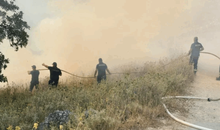
22 fires in the last 24 hours in the country, 2 still active
2025-06-30 09:21:28
How is the media controlled? The 'Rama' case and government propaganda
2025-06-30 09:13:36
German top diplomat: Putin wants Ukraine to capitulate
2025-06-30 09:00:07
Foreign exchange, how much foreign currencies are sold and bought today
2025-06-30 08:44:38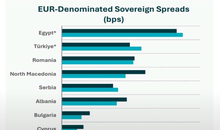
Chart/ Sovereign risk for Albania from international markets drops significantly
2025-06-30 08:26:38
Horoscope, what do the stars have in store for you?
2025-06-30 08:11:44
Clear weather and passing clouds, here is the forecast for this Monday
2025-06-30 07:59:32
Morning Post/ In 2 lines: What mattered yesterday in Albania
2025-06-30 07:47:37
Milan make official two departures in attack
2025-06-29 21:57:23
6 record tone
2025-06-29 21:30:46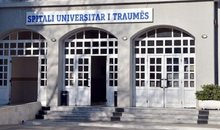
4-year-old girl falls from balcony in Lezha, urgently taken to Trauma
2025-06-29 21:09:58


Assets worth 12 million euros seized from cocaine trafficking organization
2025-06-29 19:39:43
Fire in Durrës, Blushi: The state exists only on paper
2025-06-29 19:17:48
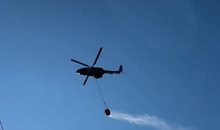
Fire endangers homes in Vlora, helicopter intervention begins
2025-06-29 18:27:51
France implements smoking ban on beaches and parks
2025-06-29 18:02:08
England U-21 beat Germany to become European champions
2025-06-29 17:42:49
Trump criticizes Israeli prosecutors over Netanyahu's corruption trial
2025-06-29 17:08:10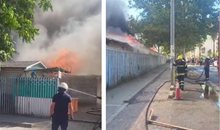
Street market in Durrës engulfed in flames
2025-06-29 16:52:57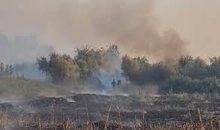
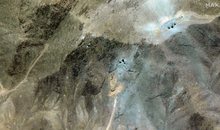
UN nuclear chief: Iran could resume uranium enrichment within months
2025-06-29 16:03:24
Albanian man dies after falling from cliff while climbing mountain in Italy
2025-06-29 15:52:01

Another accident with a single-track vehicle in Tirana, a car hits a 17-year-old
2025-06-29 15:07:15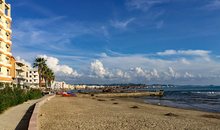
While bathing in the sea, a vacationer in Durrës dies
2025-06-29 14:54:01
Sentenced to life imprisonment, cell phone found in Laert Haxhiu's cell
2025-06-29 14:26:40
77 people detained in protest, Vučić warns of new arrests
2025-06-29 14:07:46
